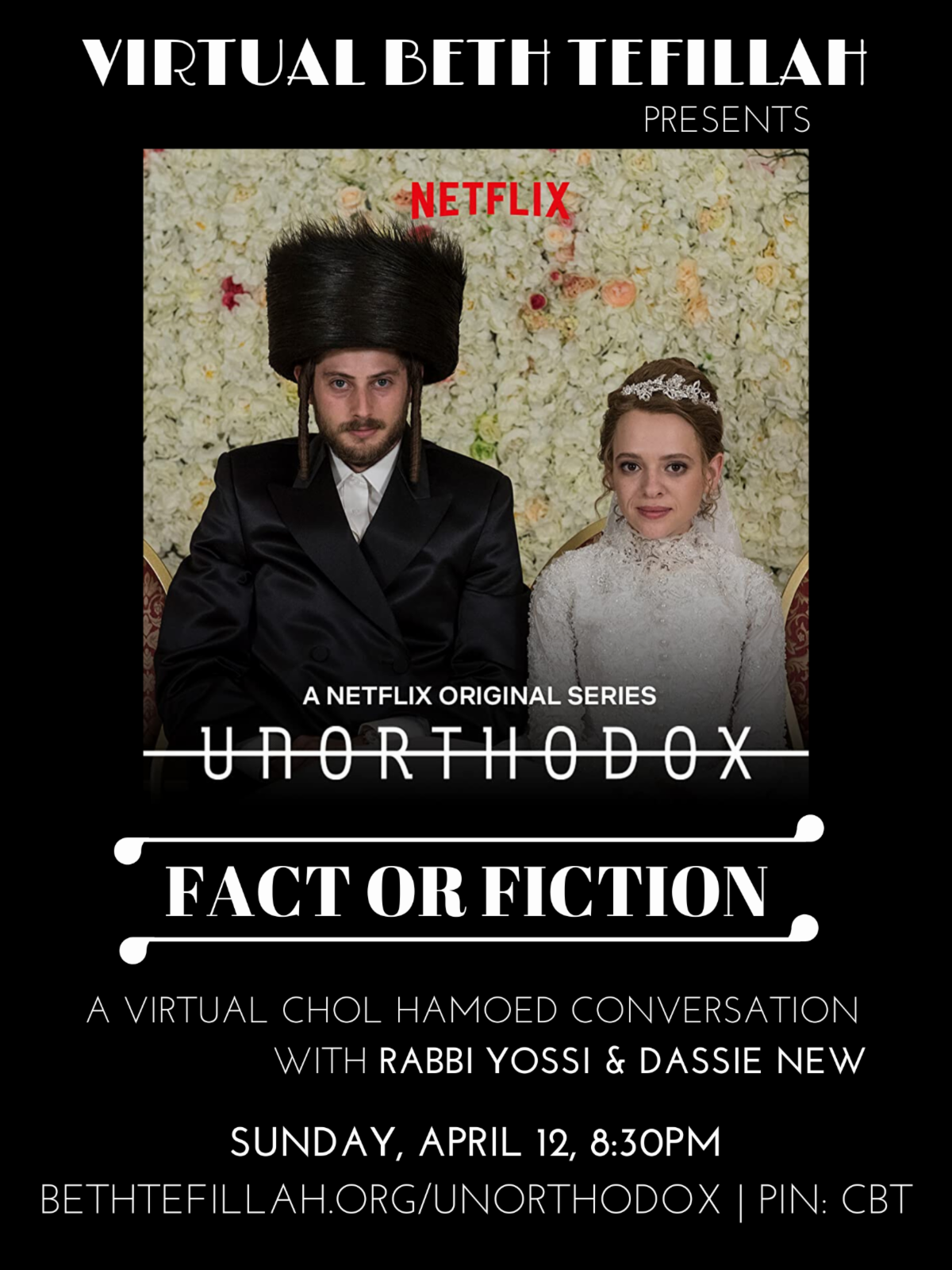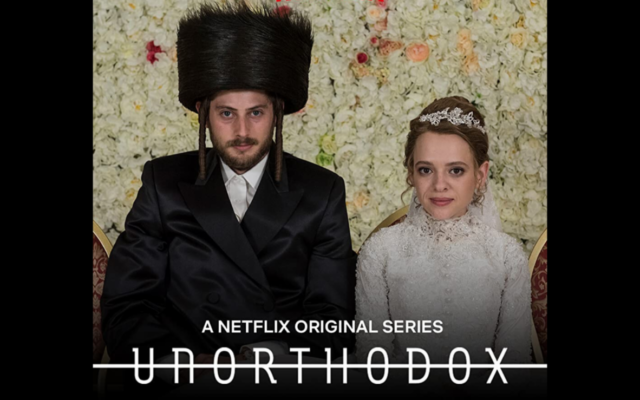Netflix’s ‘Unorthodox’ Exposes Extremes
Reaction is mixed to popular series shedding light on restrictive Jewish life.
After 37 years with the Atlanta Journal-Constitution and now with the AJT, , Jaffe’s focus is lifestyle, art, dining, fashion, and community events with emphasis on Jewish movers and shakers.
The wildly popular Netflix limited series “Unorthodox” was inspired by Deborah Feldman’s groundbreaking 2012 memoir. The series is a four-part depiction of Feldman’s life (Esty on the screen) and departure from the Satmar chasidic community in Brooklyn. The Satmar sect came out of Hungary and counts about 70,000 members worldwide.
As a sidebar, Georgians would appreciate knowing that the part of Yanky, Esty’s husband, was played by Amit Rahav, 24, who was a shaliach (emissary) to Camp Ramah Darom as a drama counselor in 2016.
The combination of the pandemic and being shut-in created this perfect storm fueled by the popularity of social media and streaming.
Not just among Jewish viewers, reactions were varied: “Are all Orthodox Jews like this?” “I couldn’t stop watching.” “Do all brides shave their heads?” “Can a judge take away parental rights based on observance level?” “Would a mother-in-law typically interfere with the son’s sex life?”
One fear is that “outsiders” will see this series as representative of all observant Jews. That’s the chance media takes with typecasting minorities: “Crazy Rich Asians,” “Hustle & Flow,” “Parasite,” “The Apprenticeship of Duddy Kravitz” – a mosaic of partial truths.
Gary Bodner, a retired physician and artist who considers himself a non-observant Jew, said, “Even growing up in New York, I had no exposure to the chasidic community. My parents were more interested in assimilation versus replacing those lost in the Holocaust” (described in the series as a Satmar motivation for alienation). “I was blown away by ‘Unorthodox’ and recommended the series on Facebook. I have hundreds of followers, many non-Jews, and wasn’t sure how it would be received. All I can say is ‘Unorthodox’ really got to me.”
Responding to the post were 50 followers, Bodner said. “There was not one negative comment.”
Rabbi Yossi New of Congregation Beth Tefillah, a Chabad-Lubavitch synagogue, Zoomed “An Unorthodox Conversation: Fact or Fiction” on April 5 along with wife Dassie and sister-in-law Leah Spalter, who knew the Feldman family. About 144 Zoomers were engrossed in the discussion.
 Rabbi New weighed in on the Satmar ultra-Orthodox perspective, “Even the Satmars were more relaxed in Europe; but in America, they focused on fighting assimilation – the danger of the melting pot. Torah is the only influence to the exclusion of all else. Yiddish is the first language, and they are minimally educated.” He further notes that they are good businesspeople and are self-sufficient. “Look at their electronic and jewelry businesses in New York. They have an incredible network of social services for economic and medical needs. Esty was not typical. She came from a broken home. This was not so much representative of the Satmars. ‘Unorthodox’ is one story of one person. It showed the extreme where religion was put before people. Lubavitch-Chasidisim emphasizes the importance of the individual. When someone is unhappy, the community bands together to help.”
Rabbi New weighed in on the Satmar ultra-Orthodox perspective, “Even the Satmars were more relaxed in Europe; but in America, they focused on fighting assimilation – the danger of the melting pot. Torah is the only influence to the exclusion of all else. Yiddish is the first language, and they are minimally educated.” He further notes that they are good businesspeople and are self-sufficient. “Look at their electronic and jewelry businesses in New York. They have an incredible network of social services for economic and medical needs. Esty was not typical. She came from a broken home. This was not so much representative of the Satmars. ‘Unorthodox’ is one story of one person. It showed the extreme where religion was put before people. Lubavitch-Chasidisim emphasizes the importance of the individual. When someone is unhappy, the community bands together to help.”
Dassie New notes that within the Satmar community are mostly decent people, and the whole community is not unhappy. “It’s not only the woman who strays and has the children taken away. It can be the father. The more religious parent wins.” She notes though that more often than men, women want out. “We cannot generalize.” Also she revealed that the author has acknowledged that there was pressure from the publisher to make the book “Unorthodox” sensationalize things and make them more dramatic than they truly were.
A third voice, Leah Spalter, from Miami Beach, was a classmate of Feldman’s mother in England and has maintained a friendship. She added details that were not portrayed in the Netflix series.
“Esty had a younger sister not shown. Feldman’s mother took her to the public library weekly. It was agreed in the divorce settlement that the parents keep one child each. The author stayed with the father because she was older and already accustomed to the chasidic way of life. Her homosexuality surfaced later on when she moved to Manhattan.”
Bodner is anxious to see how the drama plays out. “They can’t leave us hanging. Did Esty have the baby? How did she support herself? I feel there is more to this story.”




comments